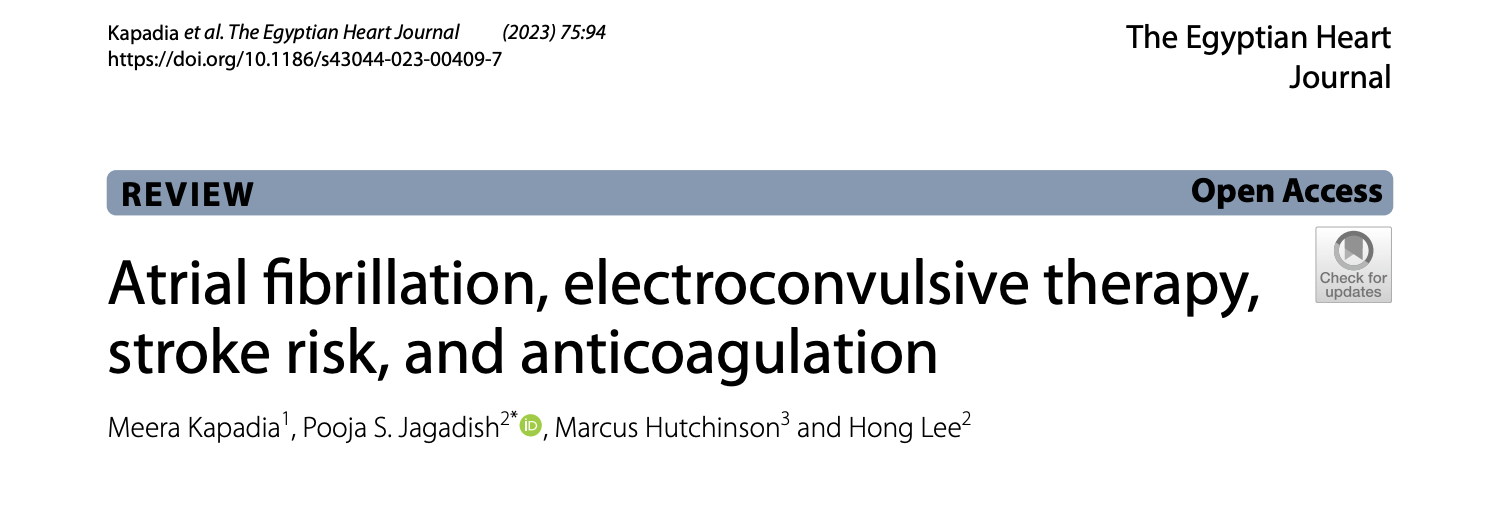Atrial Fibrillation and ECT: New Review
Out on PubMed, from authors in Texas and Arizona, is this review:
Atrial fibrillation, electroconvulsive therapy, stroke risk, and anticoagulation.
Egypt Heart J. 2023 Nov 27;75(1):94. doi: 10.1186/s43044-023-00409-7.PMID: 38010438 Review.
Background: Electroconvulsive therapy (ECT) is a therapy used to treat refractory mental health conditions, ranging from depression to catatonia, and it has gained renewed prominence in practice and the literature of late. Given that ECT involves the application of direct current to the body, there exists a risk of a change in cardiac rhythm during therapy. When atrial fibrillation is induced, ECT carries a potential risk of stroke. These risks have not been previously analyzed or summarized in the literature to allow physicians to make educated decisions about periprocedural risk and anticoagulation needs.
Methods: To better describe this risk, the authors reviewed PubMed for articles that described the post-ECT cardioversion of AF to sinus rhythm, new development of AF post-ECT, and new stroke after either rhythm change.
Results: Included were 14 studies describing 19 unique patients. Most patients had no rhythm change during at least one of many ECT sessions. Five patients converted from AF to sinus rhythm during at least one session, while AF followed ECT in seventeen patients during at least one ECT session. Four patients experienced both ECT-related cardioversion from AF to sinus rhythm as well as conversion from sinus rhythm to AF. Although no patients with a rhythm change experienced a stroke, one unanticoagulated patient who remained in AF developed a stroke post-ECT.
Conclusions: Electroconvulsive therapy is demonstrated to be associated with rhythm changes-from atrial fibrillation to sinus rhythm as well as from sinus rhythm to atrial fibrillation. Thus, stroke risk during and after ECT remains a possibility. The anticoagulation of patients with AF who undergo ECT should be based on individual stroke risk factors, using validated stroke risk models, rather than prescribed routinely.
Keywords: Arrhythmia; Atrial fibrillation; Depression; Interdisciplinary; Psychiatry.
The article is here.
And from the text:
This review is useful to remind us of the issue of new AF or conversion to sinus rhythm from AF as a rare event with ECT.
The small literature is largely old, and the new class of anticoagulants has changed the landscape. Not much helpful here and some of the speculation about causality is far fetched.
It is hard for people to grasp that the heart is sensitive to electricity, the brain is tough and resistant, and the ECT stimulus does not go near the heart...




Comments
Post a Comment